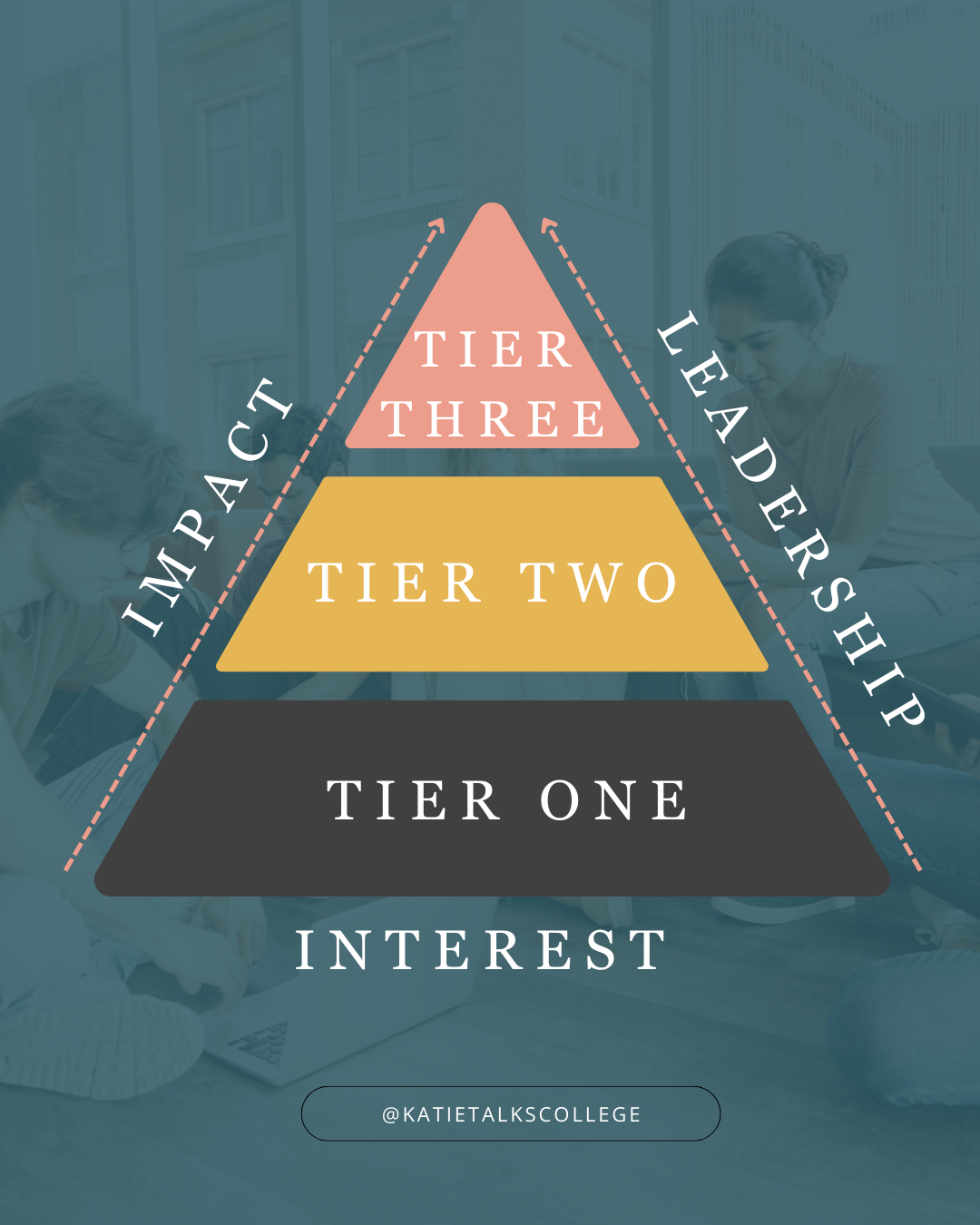Do Extracurriculars Matter for College? Understanding the 3 Tiers of Impact
When I work with students, one of my favorite conversations is about extracurricular activities—what they’re already doing and how colleges view those experiences. A common misconception is that more is always better. But the truth is, students are already stretched thin. They don’t need to be involved in every club, team, or leadership role to impress colleges. Instead, it’s far more valuable to focus on developing, engaging in, and refining activities that genuinely interest them.
If your student hasn’t found “their thing” yet, that’s okay! It’s better for them to keep exploring their interests and discovering what excites them rather than forcing involvement in activities just because they think it will impress an admissions committee. Colleges can see when involvement is authentic—and when it’s just for show.
To help families understand how colleges evaluate extracurricular activities, I use what I call the Extracurricular Pyramid. This framework breaks activities into three tiers based on depth, impact, and recognition.
The Extracurricular Pyramid Explained
Tier 1: Exploration & Participation
At this level, students are trying new things, learning, and developing their interests. Every activity starts at Tier 1. Some students might explore broadly before narrowing their focus, while others might dive deeply into a passion early on.
Examples:
Joining a school club (Robotics, Key Club, Disney Pals, etc.)
Playing a high school-level sport
Taking lessons in music, art, or coding
Babysitting
Serving in student government (ASB)
Being a member of National Honor Society, choir, band, ROTC, or theater
What colleges think: Colleges that accept a high percentage of applicants appreciate students at this stage. They value students who are curious and open to growth, knowing that college is a place where they’ll continue to explore.
Tier 2: Leadership, Initiative & Expanded Impact
At this level, students have taken their involvement further—they’re stepping into leadership roles, influencing their community, or being selected for competitive opportunities. They’re not just participating; they’re making an impact.
Examples:
Becoming a club president, team captain, or committee leader
Serving on a school board or district committee
Organizing and fundraising for a city-wide initiative
Founding a program to support a need in the community
Being selected for a competitive summer program
What colleges think: Selective colleges seek students who have refined their interests and taken initiative. They want students who are engaged, show leadership, and have made a meaningful difference in their school or community.
Tier 3: National Recognition & Major Achievements
Very few students reach this level—and that’s perfectly fine! Tier 3 students have demonstrated extraordinary dedication and impact, often earning recognition at a state, national, or international level. These students are self-driven, highly specialized, and deeply immersed in their field of interest.
Examples:
Winning national or international competitions (Intel Science Fair, Olympiads, DECA Nationals, etc.)
Receiving national awards in science, writing, or leadership
Conducting real university-level research
Launching a startup or solving a real-world problem with measurable impact
Competing at a national level in athletics
Gaining recognition in a professional field (internships at top companies, working with industry experts, etc.)
What colleges think: Highly selective colleges (think Ivy League, Stanford, MIT, etc.) expect applicants to have experiences at this level. However, not reaching Tier 3 doesn’t mean doors are closed! Many fantastic colleges value students with strong Tier 1 and Tier 2 experiences. What matters most is showing growth, commitment, and a genuine passion for your interests.
Need help identifying your students activities and how they can add depth or find colleges that fit their level of activities - let’s connect!

